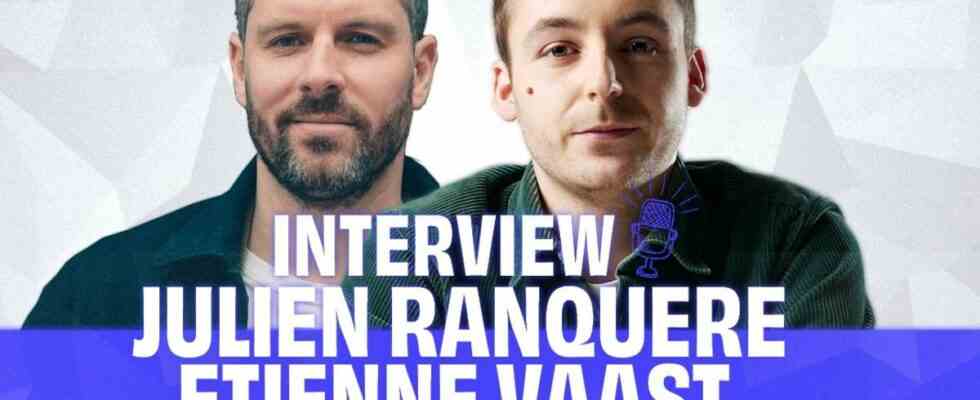With the end of confinements and the reopening of performance halls and stadiums, the world is rediscovering the flaws in ticketing: endless queues, black market, counterfeiting, etc. Julien Ranquere from Tailor NFT and Etienne Vaast from Billy Live App (guests of 20 Mint au Carré on August 16) rely on web 3 technologies to provide a solution to each of these problems. Excerpts from the interview
What is Billy Live App and Tailor NFT?
Stephen : Billy Live App is an NFT Web3 ticketing solution that allows event organizers to manage their ticketing via our marketplace. We recently sold tickets for a concert by Mehdi Maïzi, rapper journalist, on June 10 in Orléans.
Julian : Tailor NFT is very similar to the services offered by Billy. We kicked off the project by releasing NFT Olympia member cards on July 4th. These cards give exclusive benefits such as several free concerts per year, and for life. Tailor NFT aims to reinvent the ticket.
What was your starting point?
Julian : We started with a fairly simple observation: there are certain shortcomings in France concerning all mobile ticketing applications. During 2021, we realized that there was a somewhat aging and dusty ticketing market, and that a new technology was coming, which was Web3 and NFT, with a fairly obvious match with ticketing. There was something to improve the experience of fans around the ticket, before, during and after the event.
Stephen : Billy was launched in January 2022. With my partner Robin Champseix, who takes care of the tech, we often found ourselves confronted with the two big problems of the ticket office which are fraud and scalping (the fact of buying the mass event tickets, often performed by bots, then resold at very high prices). Just like Tailor NFT, we have seen that Web3 and NFT can solve both of these problems. Our mission is to dust off this sector which is a little aging, a little rigid, and to come and bring a few touches of fun and little surprises to customers.
We talked about loopholes with fraud, scalping and speculation, but what are the real limits of ticketing?
Julian : The big challenge for ticketing today is digitization. A digital ticket can be secure, but once you start printing it and QR codes start being replicated, it becomes a lot more problematic. NFT is a solution although, of course, there are also Web2 solutions that exist and work well.
The second flaw is that of experience. As a fan, going to a concert is a very important event. Before going there, it’s a promise and then a memory. But the experience of buying a ticket remains very unpleasant: it is a factor of stress, of uncertainty (will we succeed in getting a seat). It is to be reviewed.
Stephen : Today 90% of banknotes are digitized. Everything is simplified, at the stage where the ticket is a QR code that we receive by email in PDF format. We have completely lost this small feeling of collection, of the tangible object linked to the event that was the printed ticket. And this is where the NFT will be very relevant. Thanks to it, we will have a lifetime trace of the event, and there is a whole continuity on the “after the event” which will be possible with the non-fungible tokens.
Do you imagine specific things?
Stephen : The goal is to really invest the banknote as an object of creation to be collected. We must forget the physical, static object that we lose at home over the years. The ticket can be a video, a GIF, a music, many other things. We can even imagine collaborations with other artists to create a ticket that reflects the nature of the event.
Julian : With Tailor NFT, we really played the card of personalization and exclusivity within the framework of our collaboration with Olympia. Our 250 membership cards are unique and each have their own identity. Each NFT is tailor-made, a nod to the name of our project, Tailor NFT. The rarest membership card was sold at auction for 25,000 euros and is called L’Oreille Absolue. But no matter what their card looks like, all NFT holders will never pay for the Olympia locker room and will never stand in line. They will be invited to exclusive events, including virtual events.
What is the contribution of NFT compared to the classic QR code?
Julian : A platform will be linked to the Olympia hall. The NFT holder will be able, with this member card, to attend concerts, collect their drinks at the bar, etc. Each time, there will be digital passes that will be created, and which will be consumed with each action. Beyond a ticket, you have a lifetime experience with lots of advantages and it’s a new way of welcoming people to L’Olympia, very different from a classic QR code.
Stephen : On our side, we are working on a slightly more secure version. The QR code will be rotating, meaning it will change every five seconds. You can make a screenshot of this QR code, but it will be obsolete in a few seconds.

